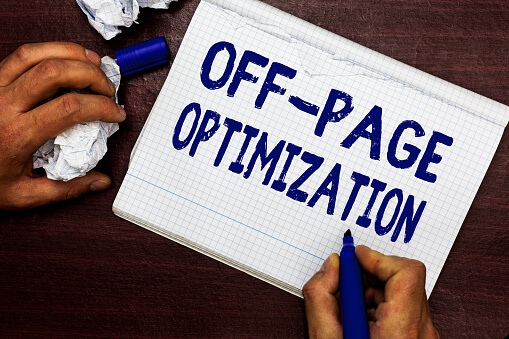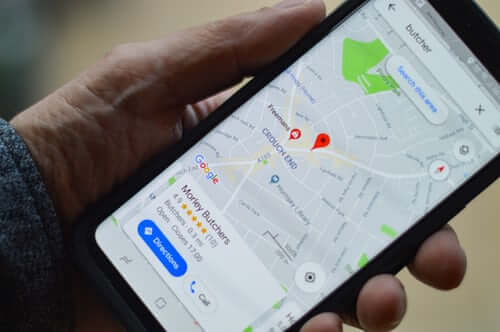What is Off Page SEO?
“Off-page SEO” is a broad and complex meshwork of all SEO tactics at work, outside your webpage. While most readers will make the logical leap to link building, in reality, the process is far more complicated. Off page SEO uses tactics like brand and citation building, content marketing, and even social media, to reach potential customers who are still searching for your page. Making changes to your off page SEO material is a great way to get more creative, without affecting your webpage or any on-page content. Google will use both your on-page and your off-page content to gauge your websites relevancy, and build trust and relevance factors, for a higher search engine ranking. Let’s explore the complex, simplicity of off-page SEO, in more depth.

Types of Off Page SEO?
There are 13 different off-page SEO tactics that agencies and SEO professionals use to build brand recognition and organic search traffic:
- Link Building – a marketing technique to get links from other websites to link to your website.
- Brand Building – generating awareness of your business using unique and lasting content and images, building brand recognizability with customers.
- Content Marketing – the creating and sharing of business-related content, online through videos, blogs or social media posts.
- PR – a targeted communication designed to inform news media of a new public statement or report.
- Local SEO (GMB and Citations) – a local SEO citation is a reference to your business name, address and phone number, on the internet.
- Social Media – websites or applications designed to connect users and share content within a social network.
- Forums – free speech and sharing of ideas with other internet users, on sites like Reddit or product or company-specific sites.
- Influencer Marketing – working closely in a partnership with an influencer to reach a new customer base through influencer reach and marketing.
- Events – in-person or digital meeting place where participants share ideas and information about products and services, or seek to educate users and other professionals, on new techniques or product features.
- Guest Posting – submission of your own, unique content, to an outside blog, forum or article.
- Podcasts – an episodic series of spoken-word audio transmissions, streamed to personal devices for easy listening.
- Reviews – customer impressions of your product or service, often indicating how well or poorly your company or product is performing.
- Content Syndication – third party websites hosting your content (blog post, article, infographic, video).

Types of Links for Off Page SEO
Links are one of the most critical elements of off-page SEO, but before you start a flurry of backlink insertion, first consider the different types of links available. Choosing the right type of link, or combination of links, will determine how successful your off-page SEO strategy is. The three main types of links are:
Natural Links – This is a link that comes naturally to your website, without your team doing anything to create it! This could include a mention of your company from someone on the web, or any links consumers create to your content, that they found valuable and informative.
Built Links – These links are built by reaching out to webmasters, publishers or even journalists to promote your content. Your team will work hard for this one, but the payoff is huge, when a new customer base starts finding your business.
Created Links – These links are submitted through blogs, forums or even press releases, by your SEO team. This tactic is considered a black-hat SEO practice, meaning it’s far less effective and often looked-down upon.

Make the most of your backlinks
Now that we are aware of the types of links you can create, it’s important to use the best ones to promote your product. There are many ways you can tell if your link is producing. Carefully monitor these different elements to determine which links you want to focus on.
- Track and analyse linking site’s popularity
- Determine how relevant the linking site’s topic is to your content and goals.
- Consider the “freshness” of the link, by determining when it was first posted.
- Use anchor text on the linking site
- Carefully gauge the trustworthiness of the linking site
- Determine how many other links are on the linking page
- Determine the authority of the linking domain and page

Final Thoughts
With a clearer idea of what “off-page SEO” constitutes, you can now launch your new strategy with all the information! Don’t limit your marketing efforts by focusing on more traditional content like blogging and linking. Google and other search engines are constantly evaluating our sites for relevancy and quality, making off-page SEO a many-headed siren, demanding daily attention. Long story short? Take the time to optimize and strengthen your site, both in terms of content and usability – there are a world of websites out there to compete with – so be powerful. Be informed. Be SEO strong!
Want Insight on your SEO?
Fill out the form below to request a complementary evaluation of your digital marketing today.

